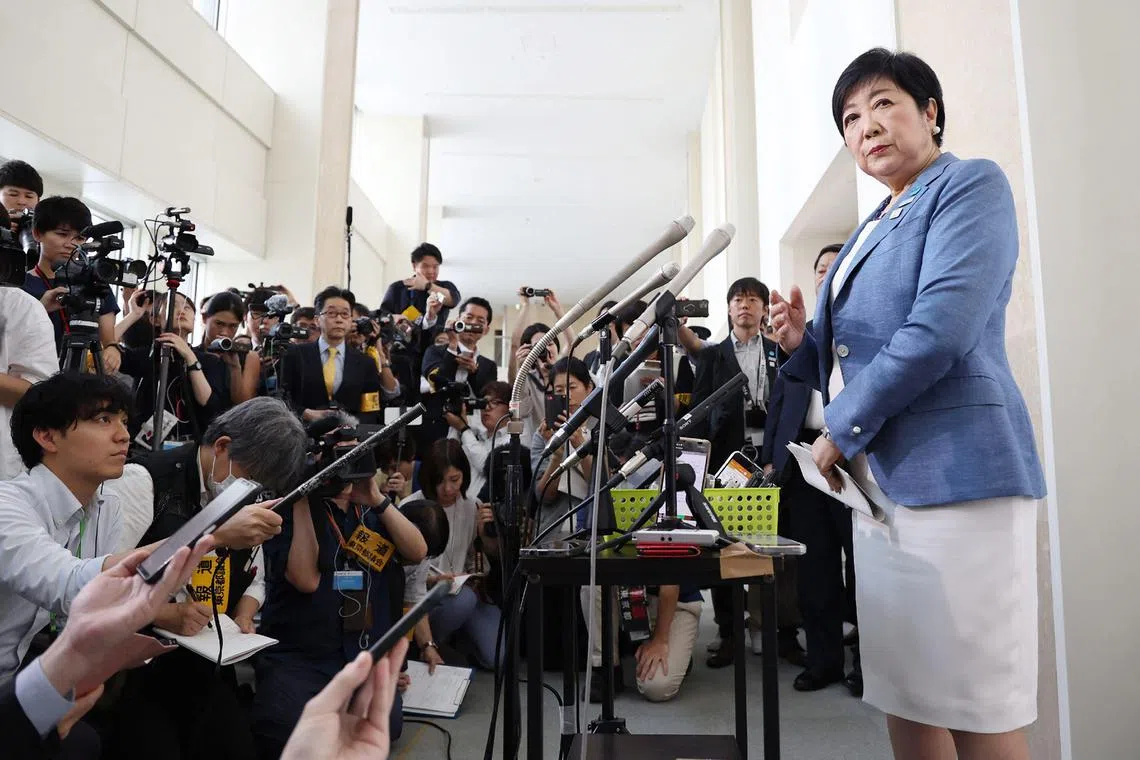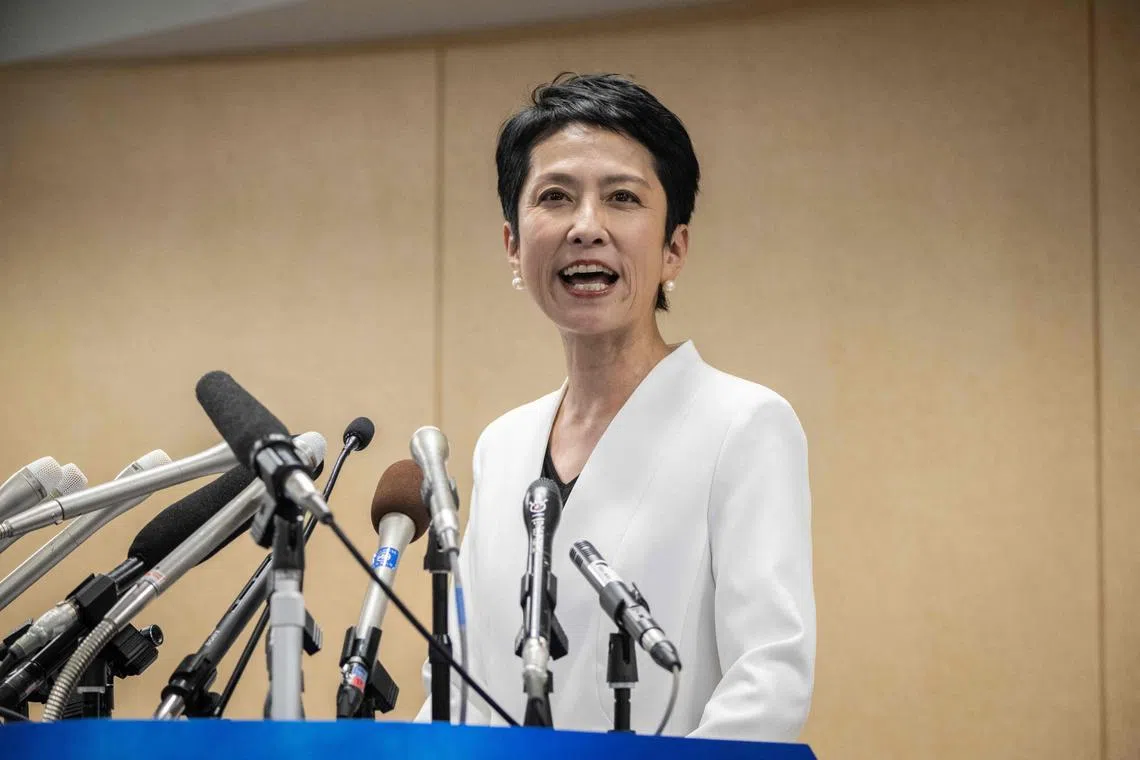Easier births, childcare on offer as women vie for Tokyo governorship
Sign up now: Get ST's newsletters delivered to your inbox

Tokyo Governor Yuriko Koike (right) speaking to the media after announcing she would run for the planned July 7 gubernatorial election.
PHOTO: AFP
Follow topic:
TOKYO – Tokyo Governor Yuriko Koike vowed to subsidise the cost of epidurals in her latest effort to entice people to have children, as she seeks to fend off a challenge from a high-profile female opponent in a July election.
Ms Koike, who is running for her third term as governor, announced the new policy amid a raft of others on June 18, while opposition Constitutional Democratic Party lawmaker Renho Saito also revealed pledges to improve compensation for contract and part-time workers as a way to fight the low fertility rate in the capital of the world’s most elderly country.
“After having their first child, I hear people say they don’t want to experience that pain again,” Ms Koike told reporters, adding that she would work so women want to have a second or third child. “I want people to see childbirth and raising children as a happiness, not a risk,” she said.
The campaign is set to start on June 20, with a record of more than 50 candidates set to run, according to public broadcaster NHK. Others include Mr Shinji Ishimaru, the former mayor of a city in Hiroshima; and Mr Toshio Tamogami, a former chief of staff of the Air Self-Defence Force.
Ms Koike’s platform includes expanding free childcare to first-born children. Ms Renho, who generally goes by her given name, emphasised improving conditions for workers to change the tide on the fertility issue, with a pledge to turn contracted government staff into full-time workers.
“I will implement genuine long-term fertility measures, support young people thoroughly, and expand their life choices,” Ms Renho said. “I will also realise transparent fiscal reforms, where everyone can check the situation.”
Demographic issues gained renewed urgency after data showed the fertility rate, an indication of the average number of children a woman is likely to produce over her lifetime, dropped below 1 in Tokyo in 2023, while the nationwide figure hit a record low of 1.2.

Former opposition leader Renho will challenge Tokyo Governor Yuriko Koike for control of the capital, setting up a rare race between two women for one of the highest-profile posts in Japanese politics.
PHOTO: AFP
Ms Koike has introduced a series of policies aimed at bolstering fertility in the 14-million-strong metropolis since she came to office in 2016, with little success. Next to come is a municipal matchmaking app set to be launched in 2024. The Tokyo government has also been overwhelmed by interest in subsidies for egg freezing.
Her championing of epidurals – which are rare in Japan – is an eye-catching new tactic. A survey conducted by the Health Ministry found that the pain-relief method was used in 8.6 per cent of births in the month of September 2020. That compares with 4.6 per cent for the whole of fiscal 2014, according to a separate study from the Japan Association of Obstetricians and Gynecologists. By contrast, about three-quarters of births in the US involve epidurals.
Reasons for the low usage of epidurals include cultural beliefs that favour natural childbirth, with pain seen as a necessary part of the process. Japan also has a lack of qualified anesthesiologists, and where hospitals do offer epidurals, they are expensive.
The average cost of childbirth in Tokyo was around 565,092 yen (S$4,840) in 2021, according to data from the Health Ministry, although this is generally offset by subsidies. Epidural use typically adds 100,000 yen to 200,000 yen to the total.
A victory for Ms Koike in the July 7 vote would likely be a relief for the ruling Liberal Democratic Party, of which she was previously a member. A loss to the opposition – following on from a series of special election defeats – would further underscore Prime Minister Fumio Kishida’s woes after support for his Cabinet fell to a fresh low in two media polls at the weekend.
Ms Koike also promised to improve Tokyo’s resilience against natural disasters.
Ms Renho vowed stronger checks on government spending, an issue she pursued as a lawmaker. She also called for a halt on a controversial redevelopment project that opponents say threatens to destroy a beloved avenue of ginkgo trees along with historic sports stadiums in central Tokyo. Bloomberg

